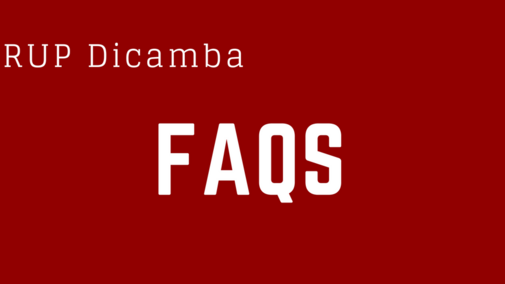My hired hand and I both hold private applicator licenses. He will be doing all my spraying. I am taking the dicamba training, but does he also have to take the dicamba training?
What is the difference between a sensitive site and a susceptible crop, as referenced on these new RUP dicamba product labels?
On the day I plan to spray my DT soybeans with one of the new RUP dicamba products, the wind is blowing 3-10 mph at boom height, toward an adjacent pasture. Do I need a downwind buffer of 110-ft or 220-ft depending on my rate?
If you're planning to use the new RUP dicamba products in 2018, you may have some questions. A new set of Frequently Ask Questions answers some of the most common questions posed to Nebraska Extension educators and the university's Pesticide Safety Education Program in recent weeks. The FAQs, available on the PSEP Dicamba Information website, will likely be updated from time to time and applicators are encouraged to check it throughout the season, said Clyde Ogg, pesticide safety extension educator.
Nebraska Extension, in cooperation with the Nebraska Department of Agriculture, has developed the training required for those applying RUP dicamba products in 2018. These products are DuPont™ FeXapan™ herbicide Plus VaporGrip® Technology, Engenia® Herbicide, and XtendiMax® with VaporGrip® Technology. The training is available in three formats: on-line, at Crop Production Clinics, and in-person. An individual chemical company (registrant) also may provide training. Before taking any of the Extension trainings, participants are asked to review information at pested.unl.edu/dicamba.
The Jan. 12 CropWatch featured several stories related to Nebraska requirements, Extension training, and university weed science research.

